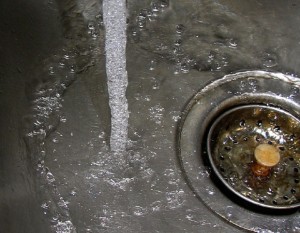 Restaurant owners and kitchen workers can tell their fair share of garbage disposal-related horror stories: pasta dishes gumming up the works; sinks—or entire plumbing systems—backed up due to malfunctioning disposals; nickels, nails or other hard objects dropped into the sink that shut down the gears entirely.
Restaurant owners and kitchen workers can tell their fair share of garbage disposal-related horror stories: pasta dishes gumming up the works; sinks—or entire plumbing systems—backed up due to malfunctioning disposals; nickels, nails or other hard objects dropped into the sink that shut down the gears entirely.
The lesson we can learn from these tales is that proper maintenance of your garbage disposal is a matter of great importance—especially in a restaurant, where revenue is dependent upon kitchen equipment working properly. Read on for a few tips on using and maintaining your restaurant’s garbage disposer.
Dietary Restrictions
Garbage disposals can be fickle beasts, so it’s important not to throw anything in them that they can’t grind up properly. This includes items like bones, large amounts of starchy or fibrous foods (like artichokes or pineapple tops) and oyster shells. You should also avoid putting non-food items like soda can tops or silverware into the disposal.
Your garbage disposal was designed to grind up food items like meats, dairy, breads and vegetables, so it’s okay to put these items in. Problems arise, though, when the machine is overloaded, so be sure to gradually put food waste down the drain while simultaneously running the water. And in a restaurant kitchen, it never hurts to post a sign next to the sink listing which items can and cannot go into the disposal.
Know when to DIY…
Certain industrial models can be easily reset with the press of a button. It’s possible that a few simple steps will set the problem straight, but be sure to read your owner’s manual before attempting a fix. And always double check to make sure the power’s been disabled before beginning a repair project!
…And when to Call a Pro
Some issues will require calling out a professional to fix your broken disposal. If your model’s reset button doesn’t sort out the issue, or if you’ve cleared the drain of any visible debris and it’s still not running, that’s a good indication that it’s time to call a pro. Chances are, a foreign object—like the afore-mentioned nickel—has fallen into the machine, or perhaps a food on the non-approved list was accidentally ground up. Either way, it’s best to have a pro take a look at it, both with regard to safety and to protecting your investment.
Common Sense Precautions
A restaurant kitchen’s garbage disposal can be a major purchase, so proper upkeep and maintenance are key. When considering a new unit, be sure to check its warranty—that way, you’ll be prepared should any problems arise soon after you buy it. Make it clear to all employees exactly how to use the disposal and what to avoid; this might be something to include as part of every new employee’s training and orientation.
If all users know how to avoid damaging your unit, it will be more likely to last for a long time without needing repairs or replacement. Do some research before you buy, and follow the above rules to make sure your hungry little beast keeps running for a long time to come.

